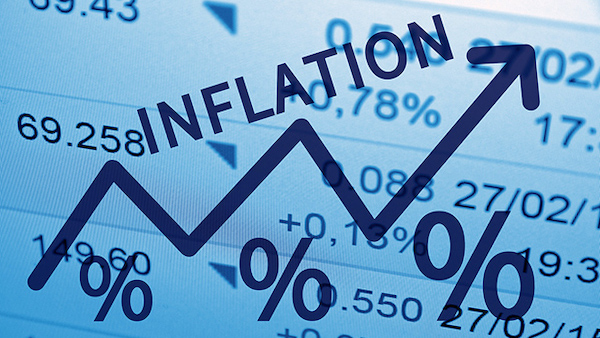Business
Inflation rate rises for 14th consecutive month on rocketing food prices

Nigerian inflation climbed for the 14th month in a row in October to 14.23%, its peak level in 30 months, driven by escalating food prices, the National Bureau of Statistics (NBS) said on Monday, in its latest Consumer Price Index report (CPI), as the cost of living in Africa’s biggest economy continue to show no sign of ebbing.
Government’s embargo on imports through land border has been weighing on food pricing the same way the restrictive measures on foreign exchange by monetary authorities and banditry attacks on farms are limiting food security and sufficiency.
The CPI, which weighs the average change in the costs of a mixed bag of food items and other consumables used in everyday living, showed that inflation upped by 0.52 percentage points, having reached 13.71% in September.
The current year is the fifth when inflation has stayed above the Central Bank of Nigeria (CBN)’s target band of 6% to 9% and it will likely keep on galloping owing to the weakness of naira, recently announced fuel hike and a recent order by President Muhammadu Buhari banning forex for food and fertiliser importation.
The development will force currency dealers to the black market where they will pay more to access foreign currency.
READ ALSO: Nigeria’s inflation driven by transportation cost – Finance minister
The food index, which is responsible for over half of the inflation basket, grew by 17.4% relative to the 16.66% in September, the highest point in the 32 months since February 2018.
Minister of Finance, Budget and National Planning Zainab Ahmed said on Friday that Nigeria’s inflation was mostly driven by surge in transportation costs even though the new NBS figures point pointed the way of food prices as the primary trigger of inflationary pressures.
Incidents of flood, herders-farmers conflict and vicious farm attacks impacted supply, dampening the effects that government’s policies promoting self-sufficiency in the production of produce like rice and wheat could make in food pricing.
It is probable that the monetary policy committee of the CBN will retain its benchmark interest rate, which it cut by 100 basis points, at the current 11.5% when it meets next week in order to pave the way for a rebound in the Nigerian economy.
Join the conversation
Support Ripples Nigeria, hold up solutions journalism
Balanced, fearless journalism driven by data comes at huge financial costs.
As a media platform, we hold leadership accountable and will not trade the right to press freedom and free speech for a piece of cake.
If you like what we do, and are ready to uphold solutions journalism, kindly donate to the Ripples Nigeria cause.
Your support would help to ensure that citizens and institutions continue to have free access to credible and reliable information for societal development.
























